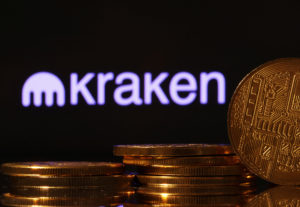NEW YORK -US energy giant ExxonMobil filed suit Wednesday against the European Union seeking to block its temporary tax on oil firms’ windfall profits, a company spokesperson said.
With energy prices soaring following Russia’s invasion of Ukraine, European Commission chief Ursula von der Leyen announced in September the plan for major oil, gas and coal companies to pay a “crisis contribution” on their elevated 2022 profits.
Details later outlined a 33 percent tax on profits for 2022, which are more than 20 percent higher than the average for 2019-21.
The Commission was careful not to use the word “tax,” when it adopted the measure at the end of September, as any new tax provision at the European level would have required the unanimous agreement of all 27 EU member countries.
Nonetheless, ExxonMobil’s German and Dutch subsidiaries on Wednesday filed a challenge to the new measure at the EU’s Luxembourg-based General Court.
“We recognize that the energy crisis in Europe is weighing heavily on families and businesses, and we’ve been working to increase energy supplies to Europe,” ExxonMobil spokesperson Casey Norton said in a statement.
“Our challenge is targeted only at the counter-productive windfall profits tax, and not any other elements of the package to reduce energy prices,” he added.
The Commission “takes note” of the suit but “maintains that the measures in question are fully compliant with EU law” and taken in a “spirit of solidarity” to address the energy crisis, a spokeswoman told AFP.
She said the “temporary solidarity contribution” would target “excess profits generated from activities in the oil, gas, coal and refinery sectors” while “redirecting collected revenues to energy consumers, in particular vulnerable households.”
ExxonMobil reported earnings of $37.6 billion over the second and third quarters of 2022.
During an investor meeting in early December, ExxonMobil’s chief financial officer estimated that the EU tax would cost the group “over $2 billion.”
She also said that the final amount would depend on how member states incorporate the measure into their 2023 budgets.
US President Joe Biden had also threatened a windfall tax on energy companies over what he called “war profiteering”, but an American version of the EU tax has not materialized.


